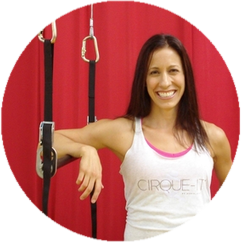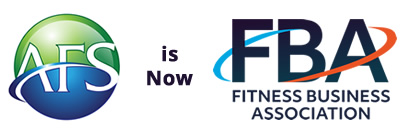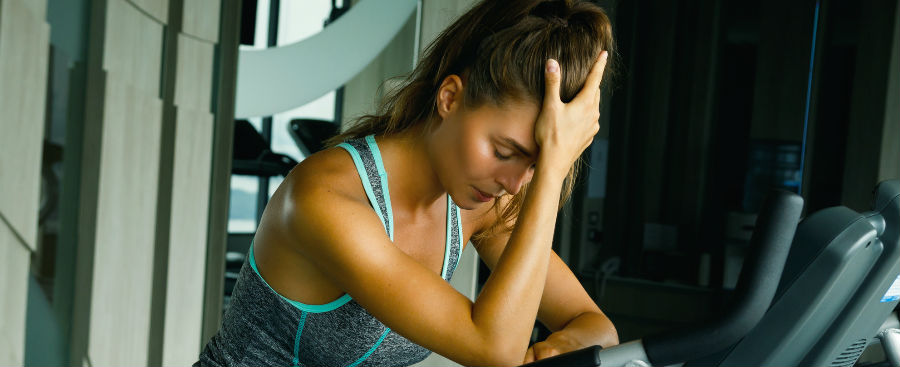 By Elizabeth Skwiot, Special AFS Contributor
By Elizabeth Skwiot, Special AFS Contributor
When I first started my career in fitness, it was for very practical reasons. I needed more money as an adjunct professor (many don’t realize adjunct professors work without health insurance and often earn poverty-level wages). I was always interested in fitness, and I felt working with something: 1. I already knew about, 2. I spent time doing, and 3. would hold me accountable to my fitness goals would be a good idea. I was right, but it - meaning the work - wasn’t always good for me.
I got my certifications, studied material diligently, trained my first clients for free, and slaved away over carefully-prepped class plans. I learned about clients, their lives, their bodies. I researched their health conditions and injuries, then devised specific workout plans to help them. I taught at two to three studios in addition to teaching at a couple of local colleges. My students loved me, my clients loved me, I did good work, and I was changing lives—including my own. But not always for the better.
Not long into my fitness career, I remember coming home after a long day to take my dog for a 5k walk to be followed by my own 5k run. After the walk, I set out for a run. My legs were like lead and I could barely finish the run. At home, I knew I should eat dinner, but I wasn’t hungry, despite eating minimally after an active day. I felt empty.
I shared this with a Pilates instructor colleague: “I feel like a dead battery.”
Her response, “It’s because you are giving out energy and taking on everything from your clients.” She then proceeded to tell me how an energy healer had suggested to her to sit in the sun regularly to recharge herself with good energy.
I’ve also learned now, after years as a trainer, presenter, and program developer, that self-care and recharging isn’t simply a feel-good strategy—it’s good business.
I wasn’t sure I needed to sit in the sun, but the analogy made sense to me. I was constantly giving output - to clients, to my students, to my dog - and there was very little input. In practical terms, I was a machine that wasn’t recharged and zapped of energy.
I realized that my career in fitness would be short if something didn’t change, and soon. I’ve also learned now, after years as a trainer, presenter, and program developer, that self-care and recharging isn’t simply a feel-good strategy—it’s good business. Here are three reasons why:
- Burned out trainers and studio owners can get sick. When you are sick, you don’t make money. We don’t have the luxury of sick days in fitness. If we have to cancel a session, that’s money we don’t see. If we need to pay an admin to run the studio, that’s money out the door. I’m not saying don’t take vacations, or that getting sick now and then isn’t a normal part of life…BUT by getting enough sleep, eating well, and engaging in general self-care, we can potentially mitigate our own downtime and thus, a loss in revenue.
- Trainers and coaches who thrive are able to give more in sessions, thus increasing the value of the session themselves and improving retention potential. We’ve all experienced time with a service provider that went well and time that didn’t. If we show up to the studio, workshop, or session tired and spiteful of our career choice, no amount of ‘brave face’ will hide that from our clients. When we are well-rested and present in the session, we have a better time, and so will our clients, thus keeping our value high and clients wanting to come back for more.
- Aligning our own practice with what we teach clients can attract new business. I expect my hairstylist to style his/her hair. I expect that my mechanic does maintenance on his/her own car. If I’m looking at hiring a web designer, I’m going to check to see if his/her site is designed well. Get the sleep, eat the food, and do the work just as you expect your clients to do, and you’ll attract intentional clients who’ll invest in their own health with you. This alignment shows your current and potential clients that this is actually more than a business for you – it’s a way of living.
Batteries need recharging, flowers need sun and water, and you need rest, nutrition, and care. By prioritizing our own health, we are then able to give more to others – our clients, friends, family, and even strangers. This giving will return itself to us—in client retention, high value, customer referrals, and - more importantly - the enjoyment of a career so meaningful to us.
Elizabeth Skwiot is the founder of Cirque-It® Fitness, a circuit-style training modality that incorporates techniques and principles of circus arts with a foundation in science and biomechanics. Classes are taught with ‘circus-infused’ moves in a small group training format that is fun, challenging, and accessible to a wide variety of fitness levels. Cirque-It Fitness hosts off-site workshops around the country, empowering fitness professionals and studios to bring this specialized training to their clients. For more information, visit cirqueitfitness.com.


Join the Conversation!